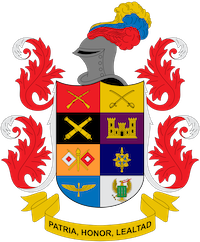"El admirable Nuevo Mundo": (re) articulaciones de antiguas y nuevas estructuras
Resumen
Esta investigación se centra principalmente en el análisis del discurso, y en cierta me dida en la genealogía del término terrorismo como fuente metodológica, con el fin de analizar sus articulaciones narrativas en vigor y las políticas de Estado. Aquí, más específicamente, se trata de un análisis entre la amplia narrativa sobre el terrorismo y la creación de condiciones posibles para las políticas rusas en Chechenia durante los dos conflictos que ocurrieron entre la Federación y el terrorismo checheno. El estudio intenta analizar cómo los discursos vigentes en el panorama internacional pueden crear posibilidades, o incluso las restringe, según el contexto. Para comprobar esta hipótesis se utiliza el caso empírico de los dos conflictos entre la Federación Rusa y Chechenia en momentos diferentes de la historia, y cómo la reacción de la comunidad internacional es distinta en los dos momentos, así las condiciones de los dos conflictos hayan sido bastante similares. Igualmente, se identifica que entre la primera y la segunda guerra con Chechenia hay cambios en el contexto internacional.
Descargas
Referencias bibliográficas
Ashley, R. (1988). Untying the Sovereign State: a double reading of the anarchy problematique. Miltenium: Journal of lnternational Studies, 17(2), 227-262. https://doi.org/10.1177/03058298880170020901
Bigo, D. e Tsoukala, A. (Ed.). (2008). Terror, insecurity and liberty: illiberal practices of liberal regimes after 09/11. Nova York: Routledge. https://doi.org/10.4324/9780203926765
Em: R. Campbell (Ed.). Violence and civilization. Nova York: Joukowsky lnstitute Publications.
Campana, A. e Légaré, K. (2011). Russia's counterterrorism operation in Chechnya: lnstitutional Competition and lssue Frames. Studies inConflict &Terrorism, (34), 47-63. https://doi.org/10.1080/1057610X.2011.531458
Campbell, D. (1992). Writing security: United States foreign policy and the politics of identity. Minneapolis: University of Minnesota Press.
Campbell, R. (Ed.). Violence and civilization. Nova York: Joukowsky lnstitute Publications.
Colin, R. (2007). Rússia: o ressurgimento da grande potencia. Florianópolis: Editora Letras Brasileiras.
Evangelista, M. (2002). Chechen wars: will Russia go the way of the Soviet Union? Washington: Brookings lnstitution Press.
Federal Bureau lnvestigation. (2012). FBI ten most wanted fugitive. Usama bin Laden. Recuperado de https://www.fbi.gov/wanted/topten/usama-bin-laden/
Fierke, K. M. (2007). Critical approaches to international security. Cambridge: Polity Press.
Haas, M. de (2003). The development of Russian security policy: 1992-2002 . BASEES Annual Conferences. s. d.
Hansen, L. (2006). Security as practice: discourse analysis and the Bosnian war. Londres: Routledge.
Hedenskog, J. et al. (Ed.) (2005). Russia as a great power: dimensions of security under Putin. Londres: Routledge.
Huysmans, J. (2006). The politics of insecurity: fear, migration, and asylun in the EU. Nova York: Routledge. https://doi.org/10.4324/9780203008690
Jenkins, B. M. e Johnson, J. (1975). lnternational terrorism: a chronology, 1968-1974. Santa Monica, CA: RAND Corporation.
Jenkins, B. M. et al. (1984). Trends in international terrorism, 1982 and 1983. Santa Monica, CA: RAND Corporation.
Kassianova, A. (2001). Russia: still open to the west? Evolution of state identity in the foreign policy and security discourse. Europe-Asia Studies, 53(6), 821-839. https://doi.org/10.1080/09668130120078513
Lee Thomas, T. (1995). The Caucasus conflict and Russia security: the Russian Armed Forces confront Chechnya. Foreign Military Studies Office. Recuperado de http://chechenianphenomenon.tripod.com/lnglish/Thomas.htm
Patterns of global Terrorism: 1983, 1984, 1985, 1986, 1987,1988, 1989, 1990, 1991, 1992, 1993, 1994, 1995, 1996, 1997,1998, 1999, 2001.
Russian Federation (1993). The Constitution of the Russian Federation. Moscú. Recuperado de http://archive.mid.ru//bdomp/ns-osndoc.nsf/1e5fode28fe77fdcc32575d900298676/dobd6a5ba542c949c32575dd004009ee!OpenDocument
Russell, J. (2007). Chechnya - Russia's war on terror. Londres: Routledge. https://doi.org/10.4324/9780203946664
Sakwa, R. (Ed.) (2005). Chechnya: from past to future. Londres: Anthem Press.
Sakwa, R.et al. (Ed.). (2005). Developments in Russian politics. Durhan: Duke University Press.
Segrillo, A. (2000). O fim da URSS e a nova Rússia: de Gorbachev ao Pós-Yeltsin. Petrópolis: Editora Vozes.
Service, R. (2008). Russia: from tsarism to the twenty-first century. Inglaterra: Penguin Books.
Trenin, D. V. (2003). The forgotten war: Chechnya and Russia's future. Policy brief: Carnegie Endowment for lnternational Peace, 1-7.
Walker, R. B. (1993). lnside/outside: international relations as political theory. Gra-Bretanha: Cambridge University Press.
Zarakol, A. (2011). What makes terrorism modern? Terrorism, legitimacy, and the international system. Review of lnternational Studies, 37, 2311-2336. https://doi.org/10.1017/S0260210510001518












